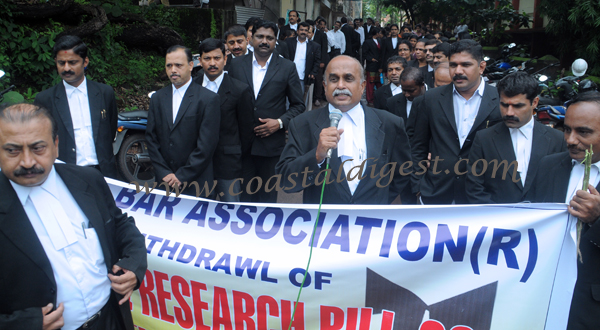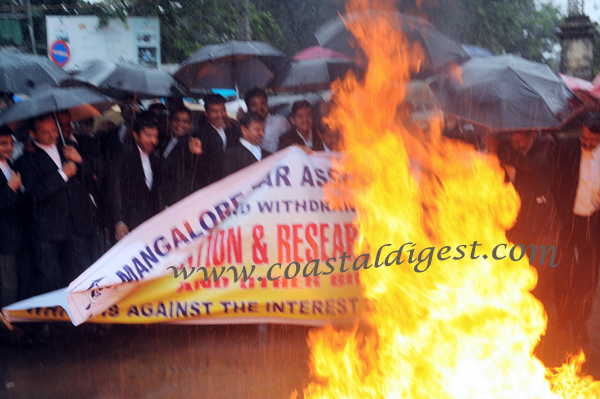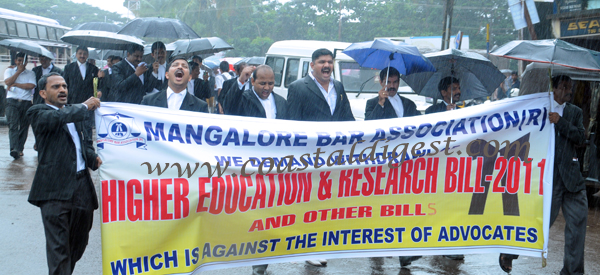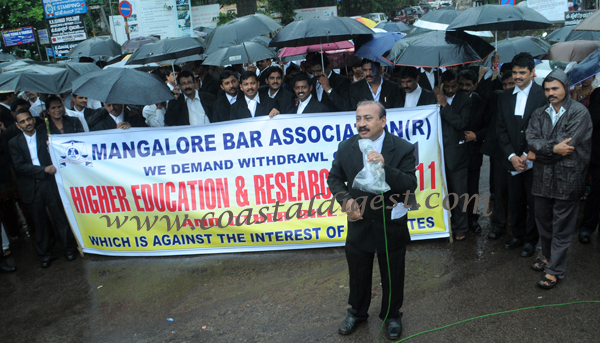
Mangalore, July 11: Functioning in all courts in twin districts of coastal Karnataka Wednesday got paralyzed when lawyers joined the two-day strike called by the Bar Council of India.
Members of Mangalore Bar Association and Udupi Bar Association have joined the strike in protest against the proposed legislation that could affect its autonomy and the entry of foreign law institutes and universities in the country.
In Mangalore dozens of lawyers took out a rally from the court premises in the morning and gathered in front of the Office of Deputy Commissioner.
Addressing the agitators, Mangalore Bar Association President S P Changappa said that the draft of Higher Education and Research Bill 2011which was expected to be tabled for discussion in the Parliament session, would curb the functions and powers entrusted to it and State Bar Councils on issues related to legal education and framing of the syllabus in the country.
He also said that the proposed Bill envisages the formation of a National Commission comprising academicians and others to look into the legal education. The National Commission will deprive the representative of Bar Council to have their say while forming the policies on legal education.
Mr Changappa said the Bill would sideline and harm the freedom of the advocates and their elected statutory bodies in connectioon with legal education and legal profession. “The Bill is also an attack on Advocates Act of 1961.”
“We are also opposed to 'National accreditation regulatory authority for higher educational institution Act 2010,' 'The foreign educational institution regulation of entry and operation Bill 2010,' 'The prohibition of unfair practices in higher educational institution Bill 2010' 'The National Law Schools Bill 2011' and 'Motor Vehicle Act 2011,” he said.
Mr Changappa alleged that the HRD ministry's negligence has resulted in poor quality of higher education in law. The Bar Council of India is responsible for education policy pertaining to degree and not at the higher education level. The Association has also opposed TO allow the foreign Institution and law firms in India.
The protesters burnt the effigy of union human resource development minister Kapil Sibal. They also submitted a memorandum to the Deputy Commissioner demanding the Central government to withdraw the proposed Bill.










Comments
Add new comment